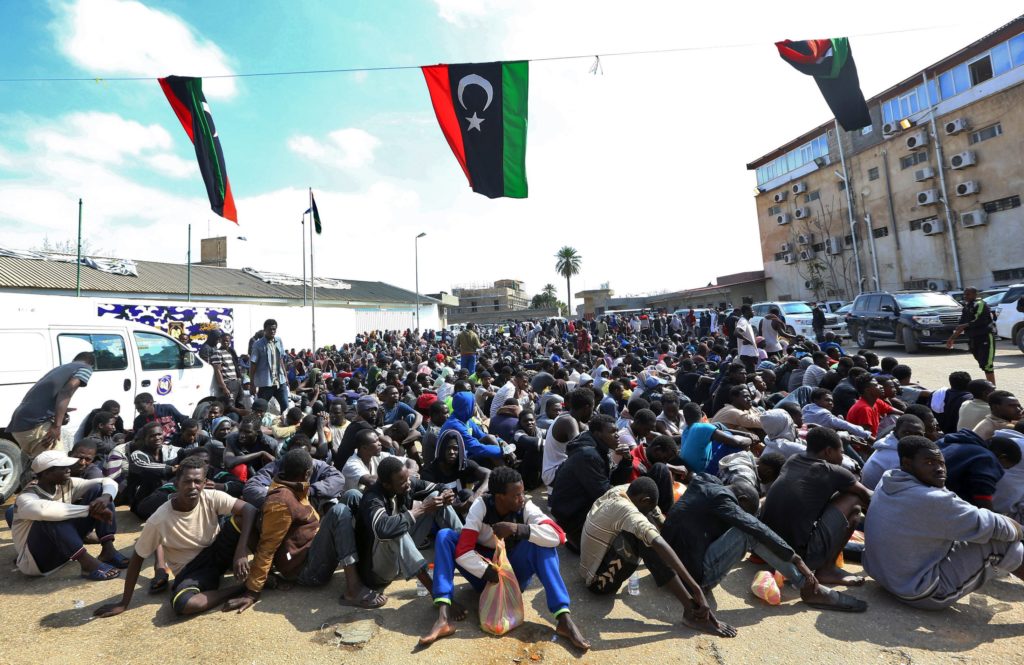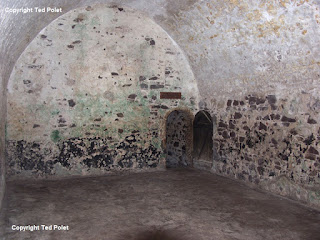For a while I haven't posted much, having to attend to other priorities. One notable piece of news is that I recently submitted the Dutch text of my book Two Fathoms Deep to my publisher. It will be published this summer. The English version is available from Kindle Direct Publishing, in digital format. The paperback version which is ready in concept, needs to be revised before I do a trial publication. Meanwhile, I have been working on a fourth book, which will have the slave trade as its subject.
 |
| the former Dutch slave fort at Elmina, Ghana |
The slave trade, a painful truth
The Dutch slave trade is still poorly understood and officially hardly acknowledged. In my local Leidsch Dagblad newspaper, recently someone responded to an article published in that same newspaper on January 13, which called for research into the role of the town of Leiden in the 17th and 18th Century slave trade, and for a slavery monument to be established.
The scope of that reaction was surprising, because the author first stresses the centuries of enslavement of many thousands of (white) Europeans in North Africa, which draws far less attention than black slavery. In itself a valid point, but I fail to see what that has to do with the Dutch slave trade. Especially when the author argues that ‘our ancestors actually abolished slavery and you should obviously be a white person to find anything wrong with slavery.’ He says that Western colonialism actually helped abolish slavery.
 |
| The letter in my newspaper that started this post |
Not a word on the endless delays in abolishing slavery in the former Dutch colony of Suriname by the State of the Netherlands in the 19th century, where for 10 years after the official abolition in 1863, former slaves had to continue working for their previous owners under what was euphemistically called 'State Supervision’.
Next, the respondent criticizes historians and chairmen of various pressure groups as being (I quote) ‘modern, politically correct and “woke” people’. According to him, the only slaves who are generally remembered are black, because white slaves lack the ‘compassion factor’ of black slaves!
All right, perhaps you are as puzzled as I was! Today my reply was published in the same paper, and I decided to describe the issue here in a broader context, in the hope that it will be read, if only by a few more.
Yes, over the centuries many thousands of Westerners found themselves sold into slavery in North African regions - hijacked sailors and residents of coastal villages, men, women and children. That was bad enough, and indeed more attention should be paid to their memory. I suggest a monument in Tangier, Algiers and Tunis, where these people were trapped and exploited, so that out there awareness should grow of what has been done to them. Not that I have much hope for awareness, because in neighbouring Libya, a failed state, the trans-Saharan slave trade is still the order of the day. And let’s not speak of contemporary slavery in the Gulf region.
 |
| contemporary slave market in Libya |
The North African issue does not diminish the matter of the transatlantic slave trade started around 1630 by unscrupulous Dutch traders and plantation owners, who tried to whitewash their actions with Biblical scriptures. You only have to study historic sources to know. The slave trade by the way wasn’t a Dutch invention, but all European countries had a hand in that – I believe the Portuguese started it, and the others just took over. But that is beside the point.
 |
| crowded hold of a slave ship |
source: https://www.joshchalmers.com/
The main difference between slavery under Arab rulers and our own ruthless human trafficking and enslaving is that a good number of our ancestors were involved directly or indirectly, even when they should have known better. They were no victims or casual bystanders, but perpetrators, who earned piles of money. Go and look at the slave forts in present-day Ghana. I've been there, the dungeons still stink of the unfortunates once kept there like trapped animals, awaiting a mode of transportation that was unworthy even of cattle.
 |
| slave dungeon in Elmina castle, Ghana |
Regarding the relationship between colonialism and slavery the only conclusion can be that the two went hand in hand. Africa (which also applies to South East Asia) was for centuries considered a region only fit for pillage, where you could get raw materials, tropical products and human beings, in a market protected by military means. The Dutch East India Company (VOC) and the West India Company (WIC), as well as the equally infamous Society of Suriname, for this purpose had their own army and navy. During the late 1700s, the Scottish-Dutch officer John Gabriel Stedman was in the colony of Suriname to help suppress a slave rising. Apparently he was genuinely horrified by his experiences and wrote a book that later served the Abolitionist cause.
 |
| the horrible image of a punished slave in John Stedham's book of 1791 |
Following the dissolution of the VOC, the WIC and the Society of Suriname during the French occupation, the Kingdom of the Netherlands (1815) continued condoning slavery in Suriname until, under international pressure, it was abolished in 1863. To compensate for the resulting shortage of labour on the plantations in Suriname, indentured labourers were brought in from British India, China, the Dutch East Indies (Chinese and Javanese) and the Middle East. The injustice involved in this has for long been ignored.
So it is not due to colonial rule that slavery was abolished, but rather in spite of it. After centuries of exploitation, Africa is still a largely undeveloped continent where the majority of the population has little security. Meanwhile, a new form of colonialism (by Western multinationals and Chinese interference) continues without respite. That neglect is one of the reasons for the mass migration from Africa to Europe and the resulting human trafficking.
The consequences are still rife in our contemporary culture and society. Don’t white people sometimes look differently at someone with a dark skin colour than at a white passer-by? Just because that person looks different, or perhaps because the centuries of undisputed superiority are ingrained in white genes?
The slave trade may not have been in our name, but we can give it a monument and make amends, including my home town. That has nothing to do with a ‘woke’ attitude or the ‘compassion factor’ towards black victims as that respondent in my newspaper said.
Rather with historical awareness and especially, with normal human decency.
No comments:
Post a Comment